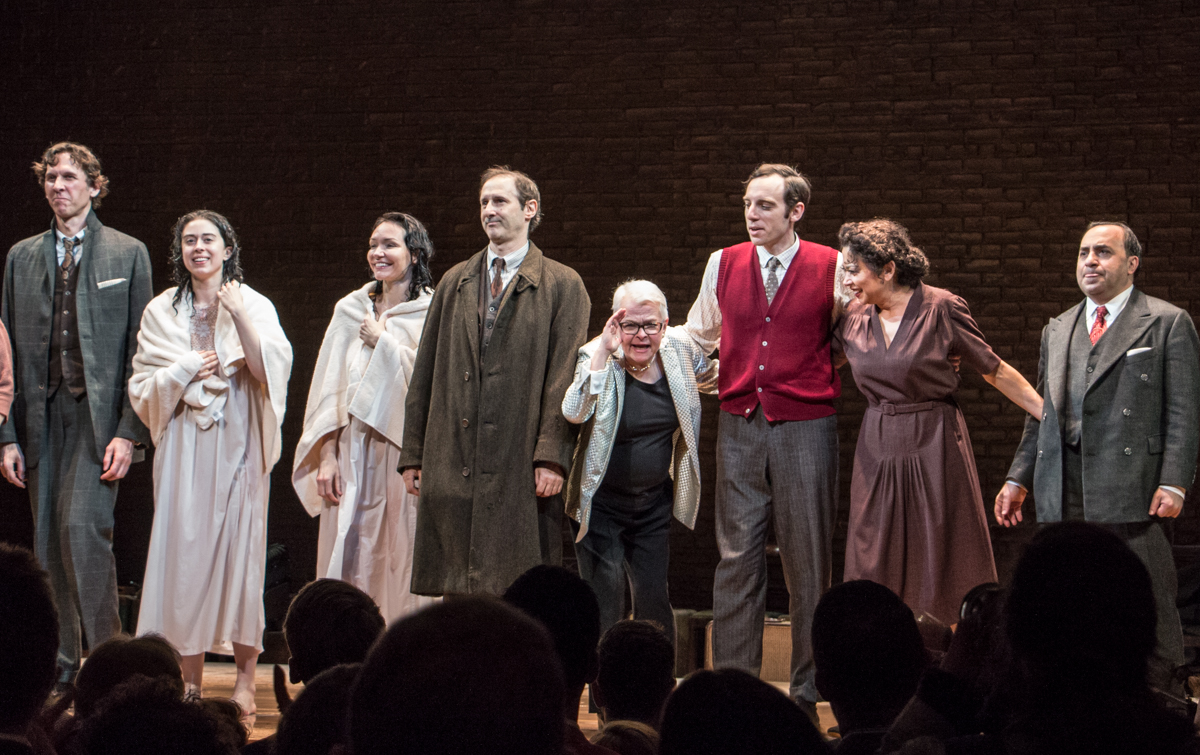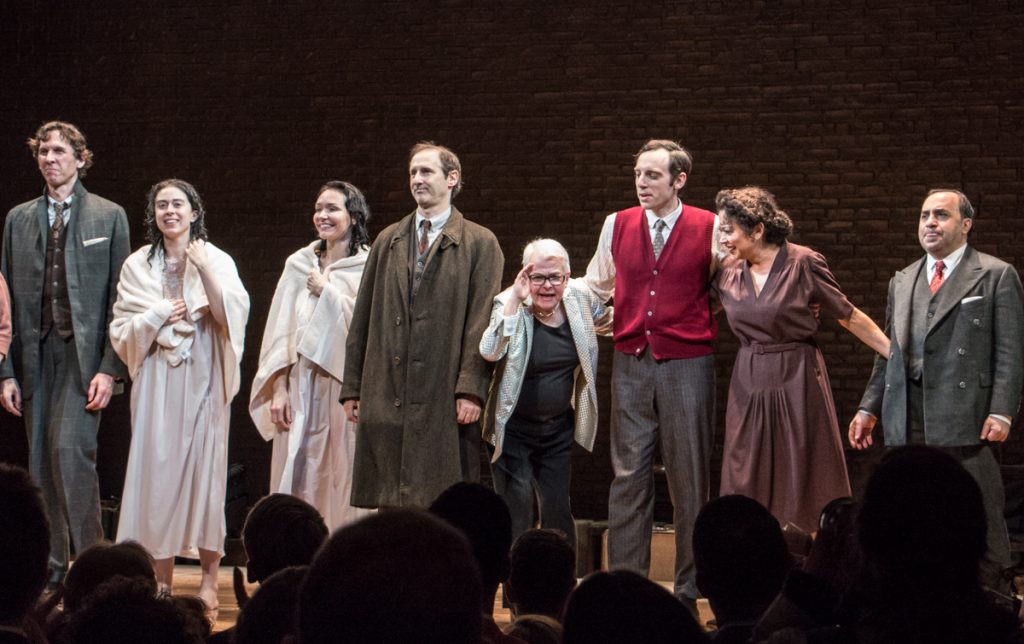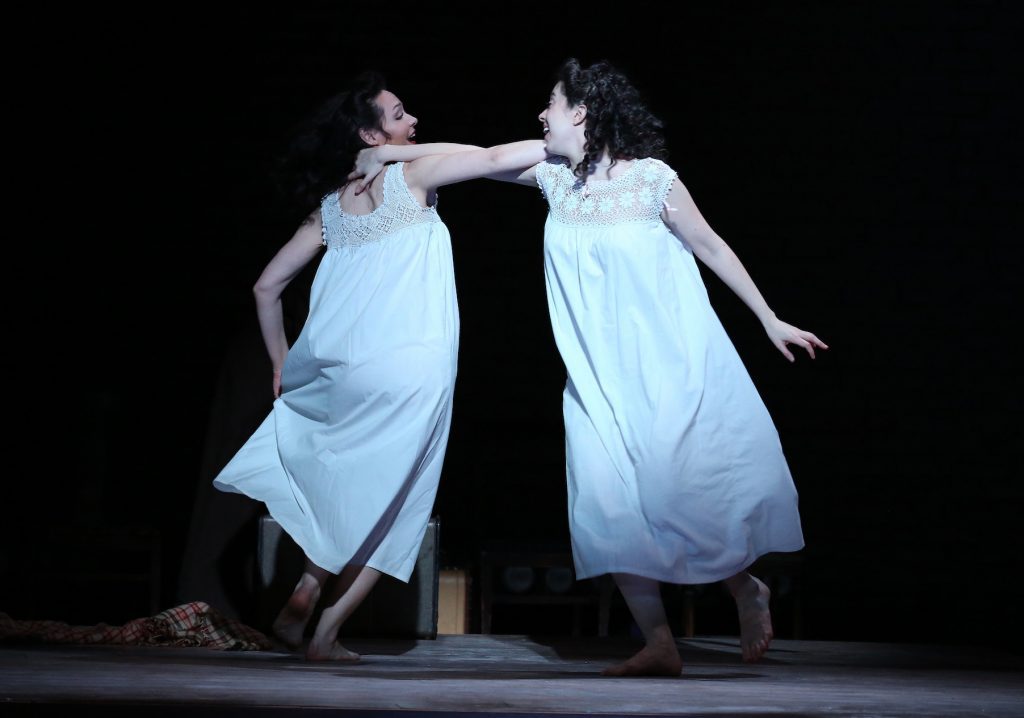By Barbara & Scott Siegel
In 1964 Fiddler on the Roof opened the floodgates for Jewish related fare on Broadway. It’s not that there weren’t Jewish plays and musicals on Broadway before – consider shows as specific as Bagels & Yox (1951) and Milk and Honey (1961), but the unprecedented success of Fiddler emboldened producers to more directly court the Jewish audience, which was already famously a big chunk of the theatre-going demographics. For decades thereafter, the Jewish audience could be counted upon to come out in big numbers when shows appealed to them.
We recall interviewing the lead producer of Baz Luhrman’s La Boheme before it opened on Broadway. In response to a question about how the show might recoup its investment, the producer said, “Every show needs three audiences in order to turn a profit. In our case, we’re counting on the gay audience, the Jewish audience, and all of New Jersey.” He was kidding on the square about New Jersey. But now, producers might be kidding themselves if they count on the Jewish audience. It may not be the force that it used to be.
The metaphorical canary that died, giving the first hint that the reign of the Jewish audience might be over, was when two of Neil Simon’s revered autobiographical “Eugene” plays were to be revived, the first one closed within a week of opening, and the second was cancelled. Here was a hugely successful playwright with critically acclaimed works about his youth, growing up in New York; they had been previously turned into movies – yet no one showed up. Where were the Jews? If these were shows that needed three audiences, even their first audience failed to arrive. Something was up. Or over.
Now, a brilliant new play has opened on Broadway, Indecent, which moved from the Vineyard to the Great White Way on a wave of strong critical huzzahs. It is, among a great many other things, a Jewish play. Its characters come to life out of the ashes of the Holocaust to tell the tale of a play that changed their world. It was a play written by a Jew about Jews, that was way ahead of its time. It glorified the love between two women; it showed avarice, greed, and cruelty in a Jewish home. The play was called God of Vengeance.
Indecent tells the story of God of Vengeance from its inception in 1907 and then follows the play’s history over the next 45 years as it first gained world-wide fame only to come crashing down, closed with an obscenity trial after it opened on Broadway in the 1920s. Yet it lived on, performed by its dedicated troupe, until there were no Jews left in Europe to either perform or see it.
Indecent is searing and soaring; the direction by Rebecca Taichman is inventive, swift, and always rapt with meaning. The cast, which doubles and triples its characterizations, plays instruments and dances; they are astonishing. If there is one standout, it is the narrator/stage manager – a character who represents the audience because he is not a person of the theater, but one who is so moved by what he sees that he dedicates his life to it. The actor is Richard Topol and he gives a towering performance. But to be frank, the show has no stars; it’s biggest star is probably its playwright, Paula Vogel, who won a Pulitzer Prize twenty years ago for How I Learned to Drive.
To succeed, this play, a breathtakingly conceived show by Ms. Vogel and the play’s director, Rebecca Taichman, is going to depend on the gay audience, the Jewish audience, and all of New Jersey. Perhaps, like the characters in Indecent, the Jewish audience will rise one more time to give its blessing to a breathtaking new play. Then we’ll see if New Jersey shows up.




















